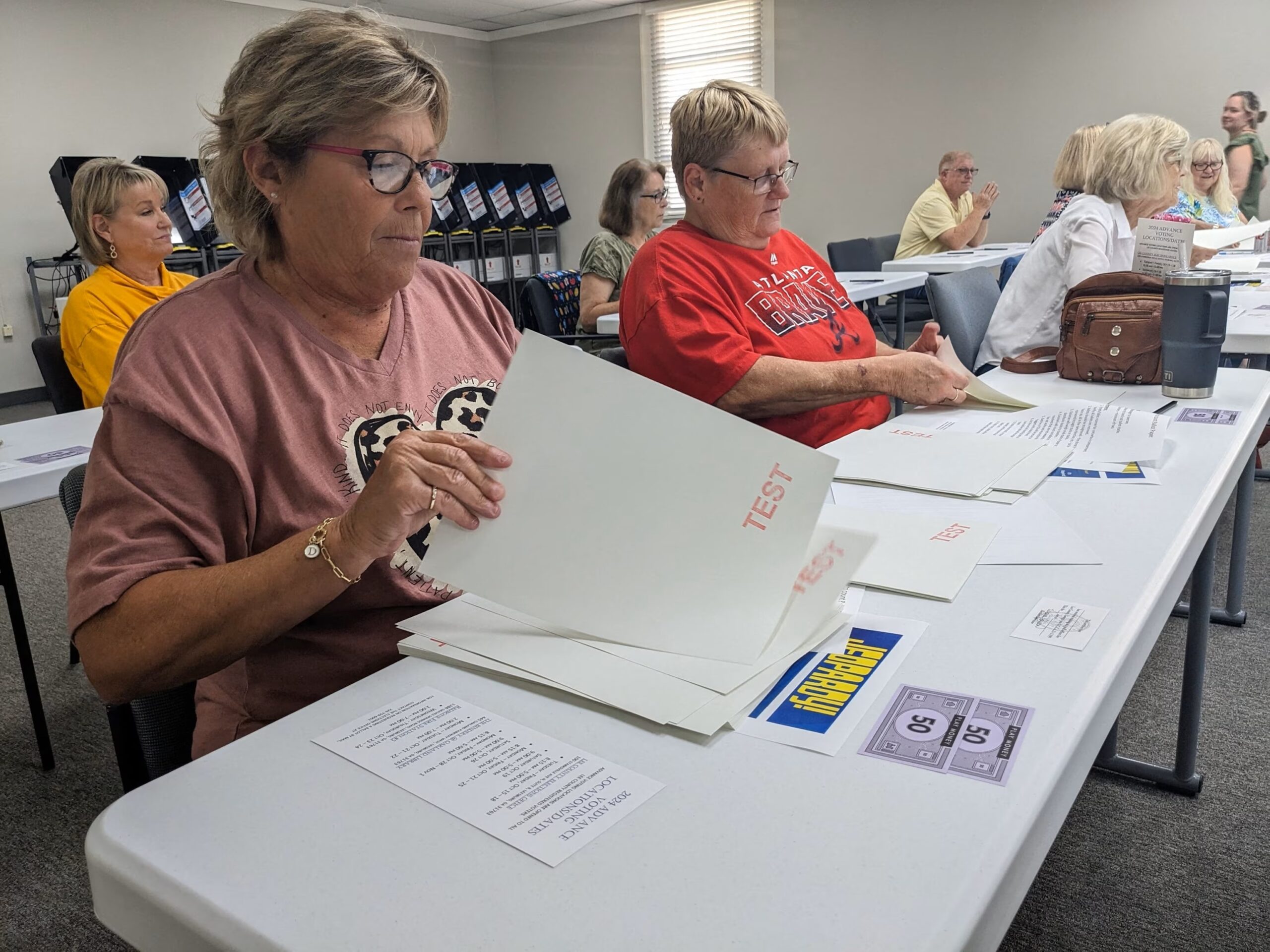In a dramatic start to what is shaping up to be one of the most consequential elections in recent U.S. history, Georgia has witnessed a historic surge in early voting. More than 328,000 ballots were cast on the first day alone, surpassing the state’s previous record set during the highly contested 2020 election. This early wave of participation, confirmed by Gabe Sterling, a senior official from Georgia’s Secretary of State’s office, reflects the heightened political tension in this key battleground state. “With the record-breaking first day of early voting and accepted absentees, we’ve had over 328,000 votes cast so far,” Sterling wrote on X, the social media platform formerly known as Twitter.
This turnout is particularly significant given the previous first-day record of 136,000 votes cast in 2020, a year that saw Georgia become a focal point of national attention after former President Donald Trump narrowly lost to Joe Biden. Trump’s defeat by just 11,779 votes led to extensive efforts by the former president and his allies to contest the results, casting a long shadow over Georgia’s electoral processes. This year, Trump is once again vying for Georgia’s electoral votes, but the political and legal landscape has shifted considerably since his last attempt to win the state.
In the lead-up to this year’s election, Georgia’s political environment has been shaped by a series of controversial changes to election administration. These changes, spearheaded by the Republican-controlled State Election Board, have been met with strong opposition from Democrats and civil rights organizations, who argue that the new regulations could suppress voter turnout, especially among minority communities. The legal battles surrounding these reforms have intensified as Election Day approaches, with many of the lawsuits yet to be resolved.
One of the most contentious changes involves the handling of absentee ballots and the reduction of drop boxes. In 2020, drop boxes were widely available and accessible around the clock. However, new laws restrict their use, limiting them to specific hours and locations, which many argue could discourage voters from using this method. Georgia’s Secretary of State, Brad Raffensperger, has stated that despite these restrictions, the state has processed more than 250,000 absentee ballot requests, with that number expected to climb to 300,000 by the end of the election period.
Raffensperger, a Republican who came under fire from Trump in 2020 for refusing to overturn the election results, has implemented additional safeguards to ensure the integrity of the 2024 election. These include mandatory audits of every race and random inspections of voting equipment to detect any potential tampering. “We are conducting random audits on Election Day, pulling equipment for testing to ensure that it records votes accurately and has not been compromised by outside actors,” Raffensperger told reporters.
Despite the legal challenges and concerns over new regulations, many voters in Georgia have expressed relief at the relatively smooth voting process compared to previous elections. In Atlanta, Corine Canada, a resident who participated in early voting, noted the significant improvements in wait times and organization. “Last time I voted, the lines were extremely long, and people started leaving because they couldn’t wait. This time, it was much better organized,” she said.
Georgia’s election is unfolding under extraordinary circumstances, as parts of the state continue to recover from the devastation caused by Hurricane Helene. The storm, which struck the southeastern United States last month, left widespread damage in its wake. However, Raffensperger assured voters that the hurricane had not disrupted the state’s election operations, with absentee ballots being mailed out on schedule.
The election laws passed by the State Election Board have led to an influx of legal challenges, with Democrats and civil rights groups questioning the timing and impact of these changes. On Tuesday, Judge Robert McBurney of the Fulton County Superior Court temporarily blocked a rule that would have required officials to hand-count the number of ballots cast at each polling location. McBurney criticized the state for approving such a rule so close to the election, suggesting it could cause unnecessary confusion. The rule will be revisited in a separate hearing later this week as part of ongoing legal proceedings.
McBurney is also overseeing a case related to another controversial rule, which mandates that local election officials conduct a “reasonable inquiry” into results before certifying them. This rule, opponents argue, could lead to delays in certification or even refusals to certify election results based on perceived irregularities. However, in a ruling earlier this week, McBurney clarified that local officials have a “mandatory obligation” to certify election results within a specific timeframe, undercutting arguments that certification is discretionary.
In the midst of these legal battles, voters in Georgia are acutely aware of the high stakes involved in this election. At a polling station in the Atlanta area, Fay Ainsworth, a self-identified Democrat, expressed her determination to vote against Trump, citing concerns about the former president’s leadership. “It is essential that we vote today to prevent the chaos that Trump brings,” Ainsworth said, adding that she believes Trump’s behavior has damaged the nation’s political fabric. Her sentiments were echoed by Joseph Henry King Jr., 77, who praised Vice President Kamala Harris for her competence. “We’ve got a crazy person running for president and a very competent woman running against him,” King remarked.
Independent voters, like Kareem Rosshandler, 32, are also making their voices heard. Rosshandler, who cast his vote for Green Party candidate Jill Stein, said he wanted to send a message to the Democratic Party over its stance on foreign policy, particularly its support for Israel. “Voting is the only way to make sure our protests matter,” he said. Rosshandler also expressed support for the Green Party’s platform to abolish the Electoral College, which he believes would improve the fairness of U.S. elections.
As Georgia’s election season continues, the state remains a microcosm of the broader political struggles unfolding across the nation. With record early voting numbers, ongoing legal challenges, and high voter engagement, the outcome in Georgia could have lasting implications for the future of U.S. democracy.








